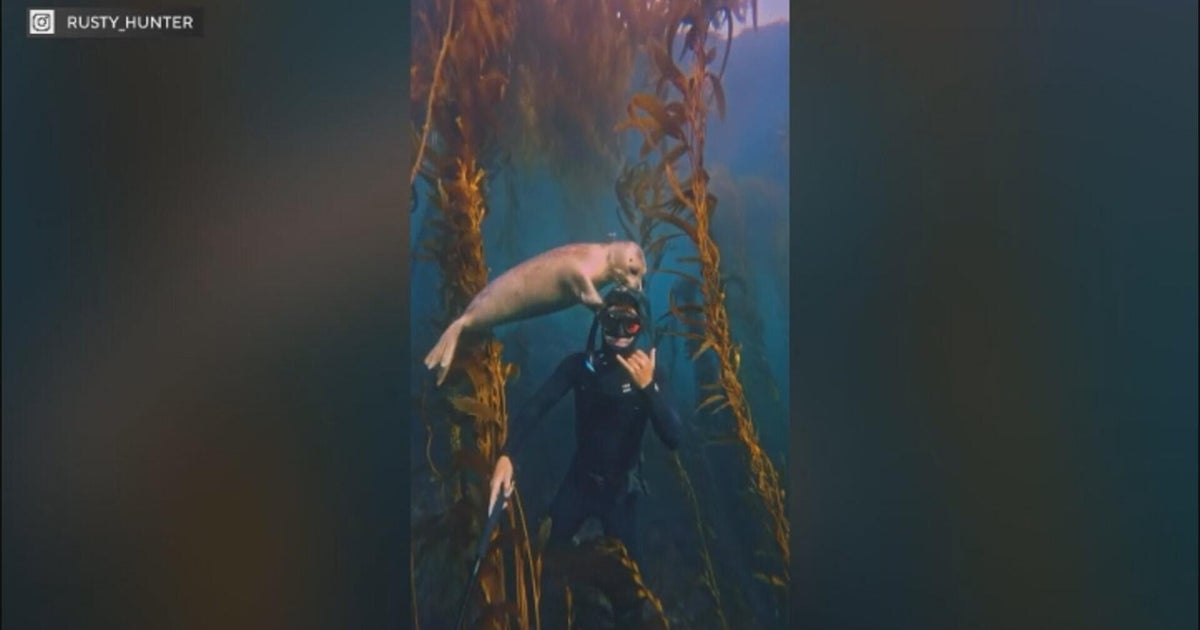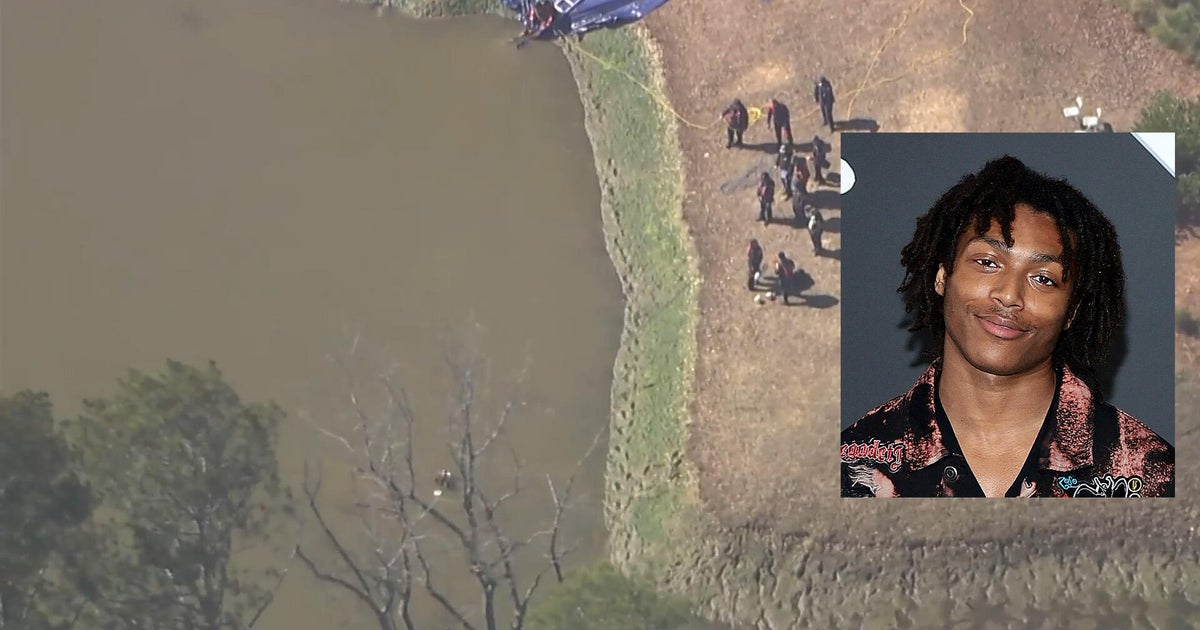Shark Attack Survivor's Harrowing Tale
MIAMI (CBS4) - If you've ever wondered what would happen if you were attacked by a shark, you're probably not alone.
"It's the kind of thing where you start thinking about it, and you start getting cold shivers down your spine, and you kind of shake your head and you don't want to think about it anymore," said Anthony Segrich, a shark attack survivor.
His scars are unforgettable reminders of an encounter with the ocean's top predator.
"It would've eaten me, if my friends weren't there," said Anthony.
Segrich was spearfishing with his buddies hunting Cobia and Grouper in April 2011. He'd done that for years, but this dive was different. Something was hunting him.
"And at that point, I kind of thought I needed to look down and see if anything else was going on, that's when I saw the bull shark coming straight up," said Anthony.
Video from the dive shows sharks emerging from the murky waters. Most went away, but one bull shark went straight for Anthony.
"And it was one of the strangest sensations, it's very difficult to describe, but I mean, you knew you were being eaten by something," said Anthony.
And that is exactly what people are afraid of - that they'll be eaten.
In 2001, Time Magazine declared it the "Summer of the Shark" after a few high-profile shark attacks, starting with eight-year-old Jessie Arbogast. A bull shark bit off the boy's arm in the waters off Pensacola. Although the arm was later retrieved from the shark's throat and reattached, the made-for-TV-story pushed the international panic button.
But the time the stats were totaled, shark attacks actually fell in 2001 over the previous year.
"Yeah, in general, they're not interested in people, and neither are lions and tigers and bears, but all it takes is one," said Segrich.
Like the one that attacked Anthony.
"Each time it opened its mouth to readjust its bite, I pushed it a little bit further off and eventually it let go of the leg," said Anthony. "At that point, it was just hanging in a cloud of blood."
Anthony used his gun line, with a fish still attached, and wrapped it around his leg to stop some of the bleeding, but he had to move quickly. The blood was attracting more sharks. Anthony's friend grabbed him and swam to the surface.
"By the time we hit the water, the surface, everything was red, it was just bubbles, boiling red, it looked like something out of the movies," said Anthony.
It's true that Florida repeatedly leads the nation in shark attacks, but last year that number was only 11. In fact, in the last 130 years, there have been 22 shark attacks in Miami-Dade and Broward counties combined, 18 in the Florida Keys. Only one of those attacks was deadly. But as you move further north up the state, those numbers increase dramatically.
"I think one of the interesting factors when it comes to shark bites is that a lot of bites take place because sharks are not seeing clearly what they're biting," said Stephen Kajiura of FAU Biological Sciences.
Anthony's attack happened about two and a half miles off shore, so his buddies brought him to Riviera Beach. The ambulance was waiting and it took about half an hour to get him to the hospital.
"They looked at the wound and basically my leg was open from the knee to the ankle. I mean, they could see the arteries," said Anthony.
Six days after leaving the hospital, Anthony was back in the water spearfishing.
"There's definitely an adrenaline rush," said Anthony.
Today, after 190 stitches, Anthony walks with a limp. Day by day, he's growing back muscle and nerves. He carries around one reminder: a piece of his wetsuit from the day time stood still.
"For me, it lasted minutes. My buddies who saw it happen said it was under two seconds," said Anthony.







